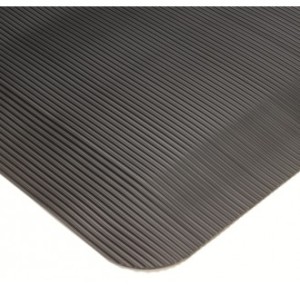Managing Food and Seasonal Allergies in Schools
This entry was posted on May 2, 2014.
 Food and seasonal allergies are a real problem for students, teachers and staff members in schools. These allergies can be mild or severe and they can cause a wide variety of health problems. Depending on the type of allergy the person has they can even be life threatening, which is why it’s so important for schools to take steps to manage both food and seasonal allergies. It’s a major part of keeping schools safe for everyone.
Food and seasonal allergies are a real problem for students, teachers and staff members in schools. These allergies can be mild or severe and they can cause a wide variety of health problems. Depending on the type of allergy the person has they can even be life threatening, which is why it’s so important for schools to take steps to manage both food and seasonal allergies. It’s a major part of keeping schools safe for everyone.
Food Allergies Is a Major Concern
Food allergies are the biggest concerns in schools because they can be the most dangerous. If a child comes in contact with food they’re highly allergic to, it can be fatal. Food allergies are a real problem but there are a few things that both parents and the schools can do to reduce the risks. Parents need to let the school know what foods their child is allergic to and make sure the student’s teacher knows about their allergies. Provide as much information as you can to the school.
Schools can take steps to reduce the risks of students from coming in contact with something they are allergic to by prohibiting students from sharing food, especially packed lunches. Another option is to ban foods known for causing major allergic reactions such as peanuts, to help keep these foods as far away from students with life-threatening allergies as possible. Keeping parents informed and reminding them that some students do have these allergies is also important and a good way to help keep dangerous food allergies in schools under control.
Seasonal Allergies
Seasonal allergies are also a problem for students. If these allergies get out of hand, students begin to miss classes and it can greatly interfere with their education. Even if they still show up for class, it can be difficult for students to concentrate when they’re sneezing, their nose is running and they simply just don’t feel good. It can be disruptive for other students, too. In addition, many students suffer from asthma, which seasonal allergies can set off.
Some of the ways schools can manage seasonal allergies is by maintaining a good ventilation system. Experts recommend that schools use high efficiency filters to keep the air clean and these must be changed often. Keeping the air that circulates within the school clean will make a difference but so will limiting the amount of containments that enter the building.
One simple but very effective way to do this is by using commercial floor mats. Entrance floor mats will reduce the amount of dust, pollen and other contaminants that cause allergies from being tracked into the school buildings. Using both outdoor and indoor entrance mats will provide the most protection and it will also help to reduce the amount of moisture that enters the school buildings.
This will help reduce mold from forming, which can cause serious respiratory problems. Keeping windows shut, limiting outdoor activities when allergy season is at its peak and keeping the school clean can also help. Protecting students, teachers and staff members from both food and seasonal allergies is imperative in order to keep everyone as healthy as possible while on school grounds.










